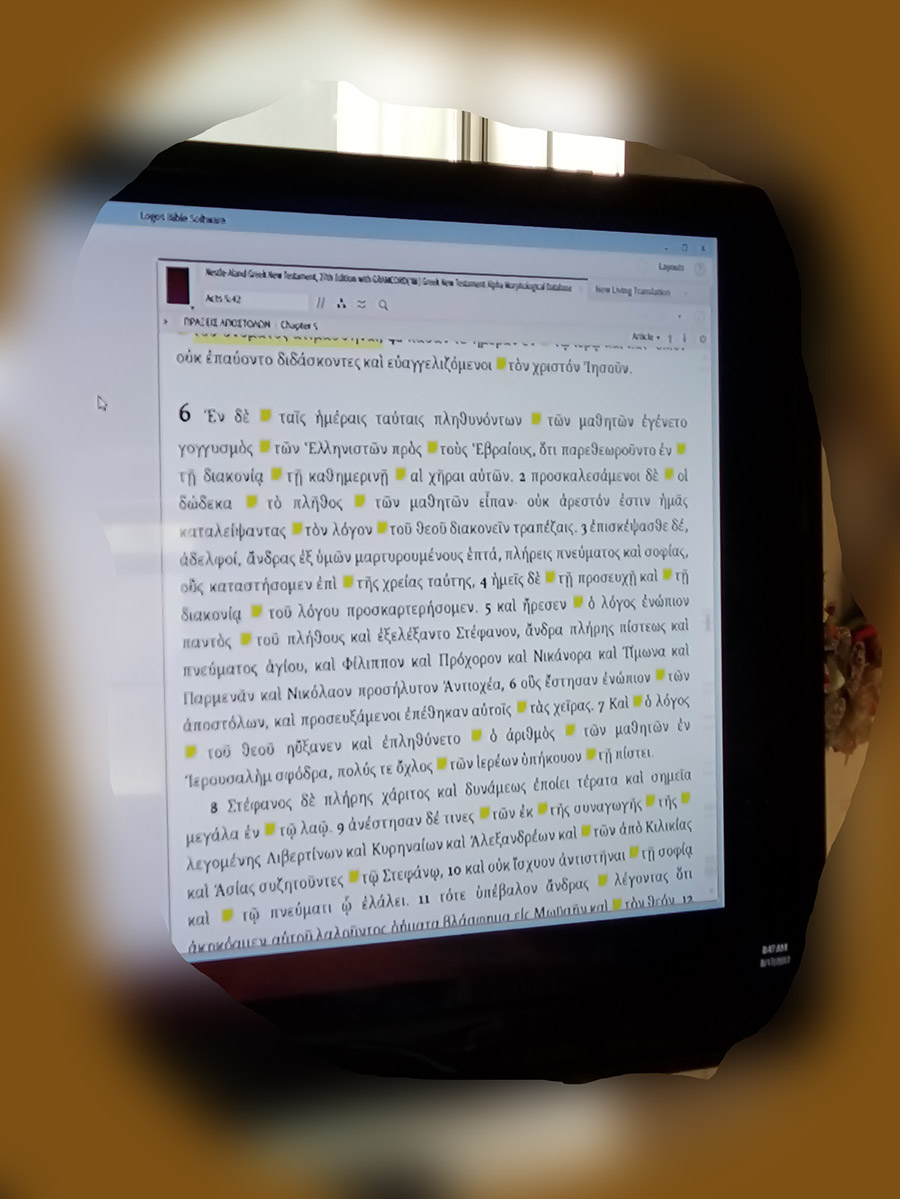Acts: God Moves in Unexpected Ways
I’m currently reading the book of Acts for my morning devotions and today I read chapter 6. That’s a nice, short chapter!
The disciples find that there are complaints about distribution of charitable works and they decide they shouldn’t be distracted from the Word in order to wait at tables (and other such things). The result is the choice of seven deacons. Again, they pray, and then lay hands on them and commission them to this work. Other than the continuing spread of the message, we’re not told how this organizational structure worked.
As Acts proceeds (since I’ve read it before, I know how the story ends!), we’ll hear quite a bit about Stephen and Philip. It’s interesting to note, however, that we don’t hear about them serving at tables, which, ostensibly, they were chosen to do. In fact, we hear them proclaiming the Word themselves. In chapter 6, it starts with Stephen, and it promptly leads to his arrest.
Let me note a couple of things here:
- They don’t record any time of prayer before going out to choose these seven men. It appears they jump straight to the strategy.
- They don’t record any time of prayer or deliberation before choosing the seven.
- They do pray before commissioning the men by laying hands on them.
- We see no record of results of this activity that match the intent. Yes, results. Stephen and Philip are significant players in the story and they are introduced to us here, but there is no record that the issue with distribution of service (apparently particularly food) was resolved.
Now it may be that I’m reading too much into the white spaces here, but this is the second time I’ve noticed this during this pass through Acts. I’d noticed before that Matthias (chapter 1) is appointed as a new apostle and then disappears from history. Considering how much of this portion of early Christian history is recorded just in Acts, one wonders if this is accidental. (My sister Betty Rae pointed this out to me some years ago.) In my reading this time I noticed how the choice to replace the missing apostle is made based on Peter’s interpretation of scripture. There’s no effort made to seek God’s will for this particular instance. Then two people are chose according to criteria they select.
Let’s parallel the numbers:
- There is no prayer time as they choose the basic strategy. Unlike Acts 6, this strategy is apparently based on Peter’s reading of scripture.
- They choose two people again without any time of prayer.
- They now pray and ask God to choose between the two. The situation differs from Acts 6 in that the seven were chosen and then the prayer is offered as they commission them. “Please bless the ones we have chosen,” is the petition. Here it’s “choose one of the two options we’ve given you, Lord.”
- No results are recorded.
Now comes the fifth step, which is what’s hitting me on this pass through Acts. God immediately takes action to advance the kingdom, and it doesn’t fit with the human plans, even the plans by the apostles. In Acts 6, Stephen heads right out to proclaim the gospel and defend it. In the case of Acts 1 we have to wait until chapter 9 before we see God choosing someone as an apostle, one who doesn’t fit the list of criteria, but who certainly carries out the mission.
I wonder if Luke is telling us something here? I’m really not that acquainted with scholarship on Acts, so this may have been thoroughly ground to dust somewhere in the commentaries. Still, it’s something to think about.


